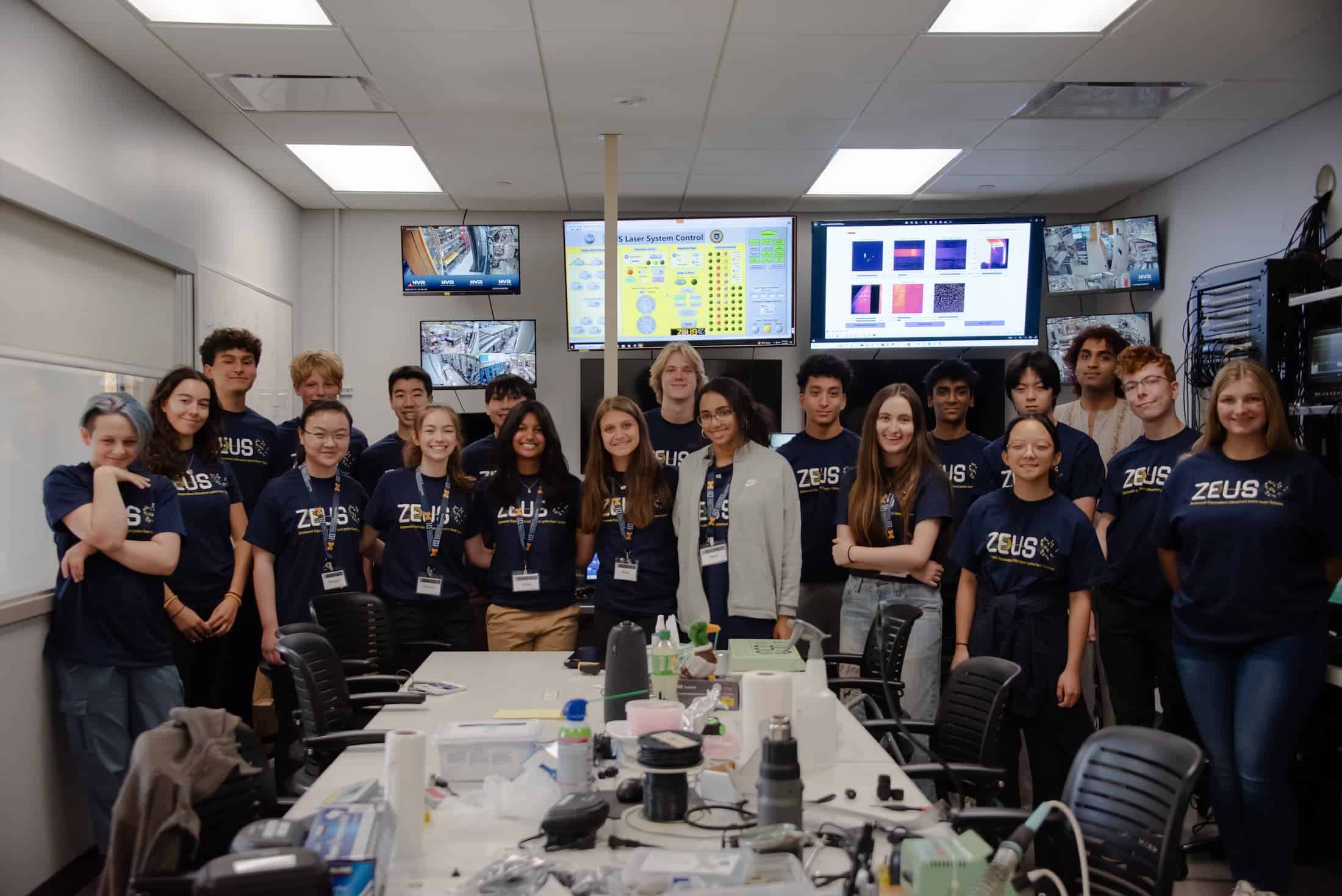
New ZEUS outreach initiative aims to increase access and engagement
Carolyn Kuranz will lead the National Science Foundation-sponsored project to develop inclusive educational programming and interactive exhibits.

Carolyn Kuranz will lead the National Science Foundation-sponsored project to develop inclusive educational programming and interactive exhibits.
The University of Michigan’s ZEUS Laser Facility has been awarded a National Science Foundation grant to enhance outreach and education at the ZEUS Laser Facility. Led by NERS Associate Professor Carolyn Kuranz, this initiative aims to broaden access and engagement in STEM through innovative educational programming and an inclusive visitor experience.
The grant will support the creation of a sustainable outreach and education program at ZEUS. This initiative will provide meaningful engagement opportunities for undergraduate students and introduce middle and high school students to the exciting science conducted at the facility. By broadening the facility’s reach, the program aims to inspire a new generation of scientists and foster a deeper understanding of ZEUS’s unique capabilities.
The ZEUS Education and Outreach Team in collaboration with the U-M’s Women in Science and Engineering (WISE) program and the Physics Lecture Demonstration Laboratory, will develop a hands-on learning space and interactive exhibits. Kuranz will work closely with Elizabeth Oxford, the ZEUS Outreach Coordinator, to create an inclusive and welcoming environment for all visitors, expanding the facility’s accessibility and showcasing the groundbreaking research conducted with ZEUS.
The team will also design comprehensive educational materials, including online tools, to reach a broader audience. This programming will be tailored to meet the needs of students and educators, especially those who may face challenges in visiting the facility in person.
The ZEUS Laser System, also funded by the National Science Foundation, is the most powerful laser in the United States. The facility boasts a 3 Petawatt laser capable of operating in multiple modes, including a single 3 PW beamline, a dual beam setup, and a high repetition rate burst mode. ZEUS serves as a user facility, attracting scientists, postdoctoral fellows, and students from various disciplines, including plasma physics, high-field science, and high-energy-density physics.
“Elizabeth and I are looking forward to working with NSF and community members to engage more students in plasma physics and the science of high-intensity lasers,” said Kuranz.